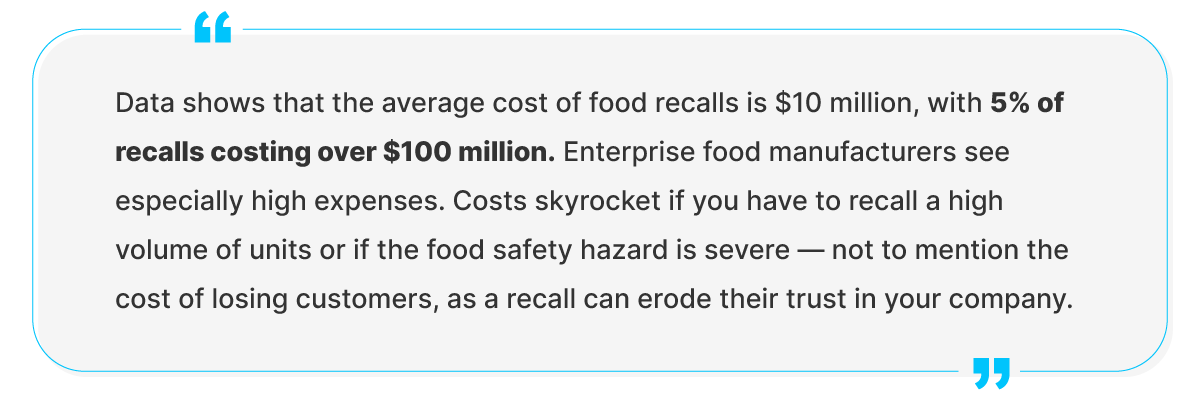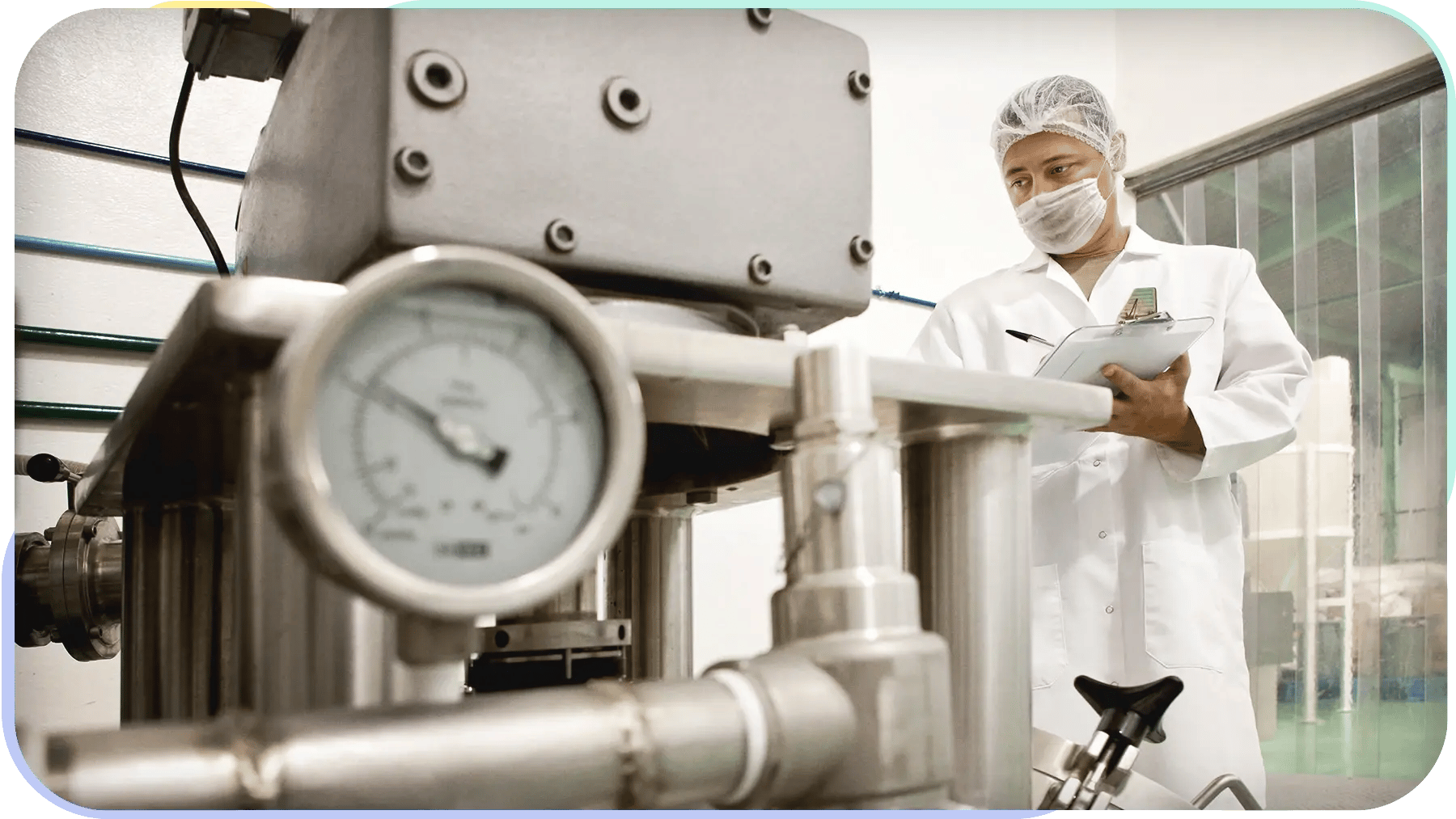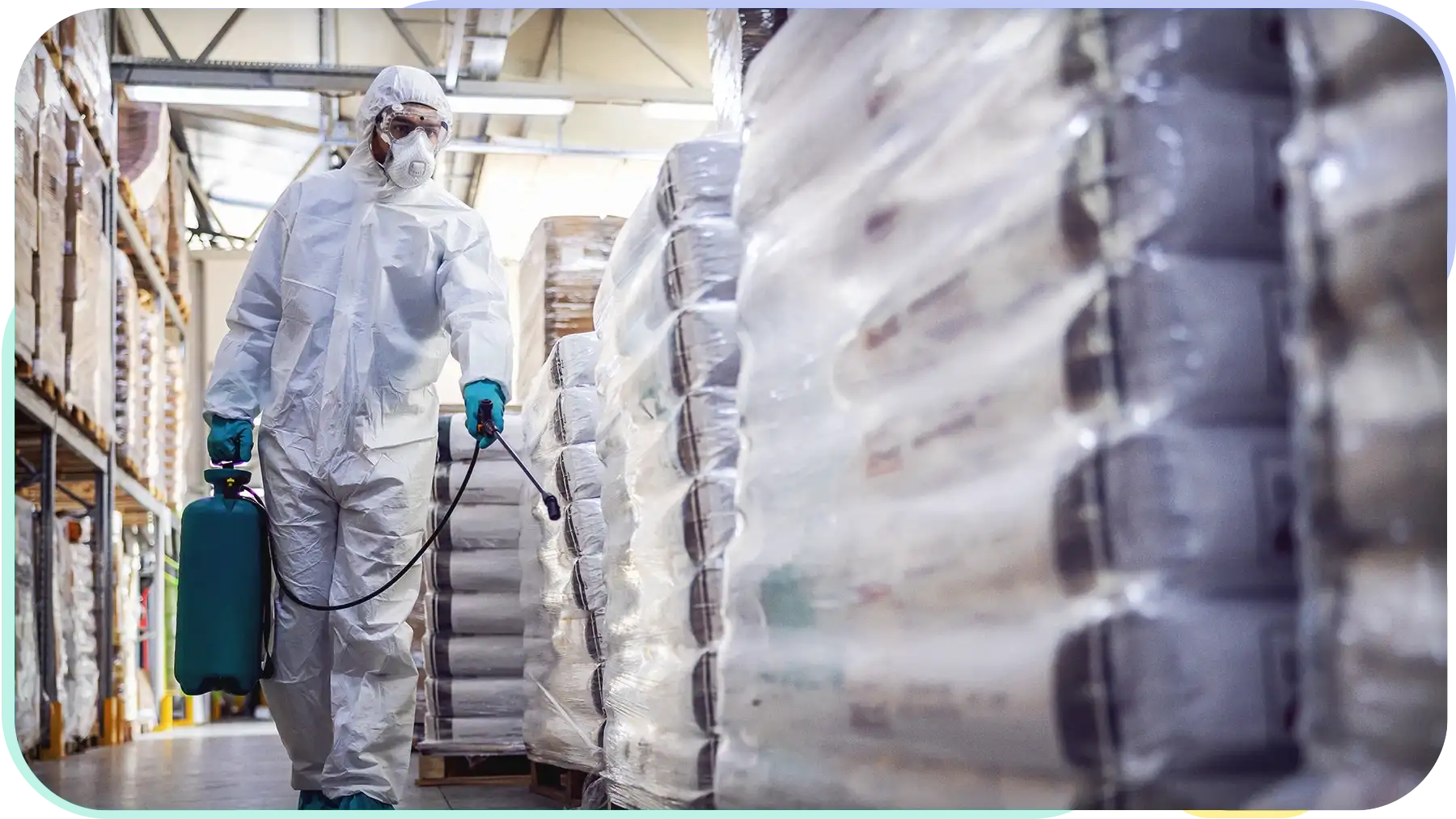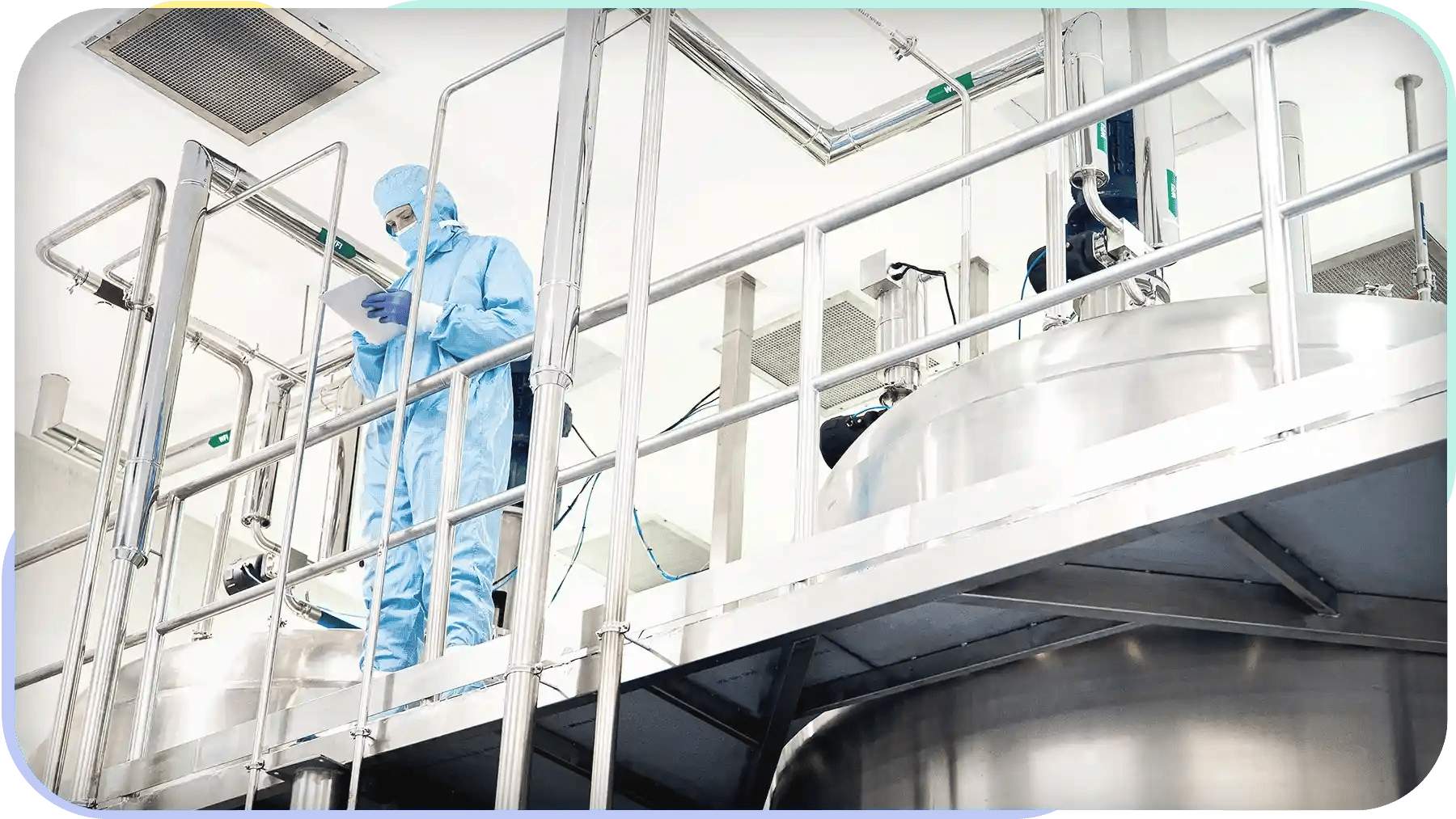- Products
- Use Cases
- Process contractors and validate credentials
- Improve facility compliance to industry standards
- Improve speed of visitor check-in process
- Screen visitors or restrict access to my facility
- Automate my reception experience
- Improve and automate my facility evacuation process
- Manage facility security across multiple locations
- Industries
- Pricing
- Resources
- Company
How to Automate Health & Safety in Food Manufacturing
January 4, 2023
Millions of consumers rely on the food industry to ensure they access safe and nutritious products. Accordingly, food manufacturers are responsible for upholding the highest health and safety standards for their products.
On the one hand, health and safety in food manufacturing are crucial to a company's success as it prevents costly recalls. On the other hand, food safety in manufacturing protects consumers' health by preventing contamination.

Regardless of the size and type of your food manufacturing business, ensuring that your products are of the highest quality and safety standards is beneficial. Read on to learn the importance of health and safety in food manufacturing and a few tips to streamline food safety in your manufacturing plant.
4 Tips for Health and Safety in Food Manufacturing
What is the best way to prevent poor food safety? Follow these four critical steps to improve food safety in your food manufacturing business:
1. Create Critical Control Points During the Food Production Process
The control point concept is part of the Hazard Analysis and Critical Control Point (HACCP) principles. It's an effective industrial food safety tool for identifying hazards throughout production.
According to the FDA, a critical control point is any step at which you can apply control to prevent or eliminate a food safety hazard or reduce it to an acceptable level. Accurate CCP creation will help you control food hazards that can cause injury or illness to consumers.
For instance, a heating process that uses a specific temperature level to destroy a microbiological pathogen could be a CCP. Other CCPs could include refrigeration, storage and transport, and packaging. Creating a comprehensive list of CCPs will help your organization assess and control the causes of food contamination before they can affect the final product.

2. Mitigate Health Risks by Emphasizing Employee Health
Employee health directly impacts industrial food safety. A sick employee could be a source of contamination and pathogens that could affect the quality of your food products. This is why you should have industrial food safety protocols to protect employees and customers.
Before employees can access your food manufacturing facility, you should screen them for health issues. You should also ensure they wear the right protective gear when handling food.
It's also vital to have a system of ensuring employees follow industrial food safety protocols. Ensuring employee hygiene promotes a food-safe environment, reducing the chances of contaminated products entering the market.
3. Ensure Compliance with GMP & FSMA
Improving facility compliance to standards is important for every organization. Regulations and requirements can vary by region, industry, and process. But in the food and beverage industry, GMP and FSMA compliance are consistently a top priority.
GMP
Good Manufacturing Practice (GMP) is an industrial food safety system that sets out the requirements, policies, and procedures that food manufacturers should follow to meet food safety standards.
Implement GMPs throughout your organization, from the facilities and equipment used to manufacture food products to the processes used for production and distribution. For instance, the GMPs require you to sanitize your utensils, equipment, and the entire facility to prevent food contamination.
FSMA
FSMA compliance prevents the spread of foodborne illness through education, inspection, and safety practices. Although the Food Safety Modernization Act is voluntary, failure to comply can have severe costs, such as recalls or preventing products from being sold.
Voluntary compliance also benefits organizations by protecting their brand and reputation, and reducing liability risks.
The FDA recently updated FSMA with the final rule on Requirements for Additional Traceability Records for Certain Foods. For more details, explore our FSMA Compliance Checklist and Final Rule Update.
4. Limit Exposure to Potential Food Hazards by Monitoring Visitors
Besides your employees, visitors are another potential source of industrial food safety hazards. That's why you should ensure that they are adequately monitored and tracked when they enter and exit the premises.
Apply industrial food safety policies that limit or monitor visitors in sensitive areas and require appropriate protective clothing. It is best practice to keep a digital visitor log of visitors to trace back any food safety events.
A visitor management system is the most effective way to automate visitor logs, monitoring, and tracking. iLobby combines powerful integrations and smart technology to give you better control of your food manufacturing facility, visitors, and employees. Our easy-to-use food manufacturing visitor management software can control access to restricted areas, track visitors in real time, and securely collect essential data.
iLobby's enterprise visitor sign-in software can also streamline your visitors' health and safety screening. It will allow you to create custom elements to enhance safety, such as healthy surveys for your visitors and automatic body temperature screening.
The Importance of Health and Safety in a Food Manufacturing Business
Food safety in manufacturing protects your organization and consumers. Failing to comply with food safety laws is a public health risk. As such, organizations face high costs, penalties, and damaged reputations if they fail to follow safe food manufacturing protocols. Here are more details about why industrial food safety matters:

Preventing Expensive Food Recalls
Proactive food safety saves manufacturers millions of dollars.
Failure to uphold food safety in manufacturing increases the risk of contaminated products in the food chain. Once consumers or authorities discover defective products, your food business could face significant disruption. The recall process is time-consuming and costly, not to forget the added costs of a public relations crisis.
Data shows that the average cost of food recalls is $10 million, with 5% of recalls costing over $100 million. Enterprise food manufacturers see especially high expenses. Costs skyrocket if you have to recall a high volume of units or if the food safety hazard is severe — not to mention the cost of losing customers, as a recall can erode their trust in your company.
Protecting Consumers' Health and Well-Being
Industrial food safety is essential for protecting human health since contaminated food can cause foodborne illness outbreaks. According to the World Health Organization, about 600 million people fall ill after eating contaminated food. Another 420,000 die of food contamination yearly.
Food safety in manufacturing reduces the risk of your organization becoming part of a food contamination crisis. Responsible food manufacturing practices protect consumers' health and well-being by minimizing human exposure to unsafe food products.

Are You Taking the Preventive Measures Needed?
Health and safety in food manufacturing are paramount to the success of your business. Adherence to food standards create a safe working environment, protects your food products from contamination, and keeps your customers safe.
iLobby's facility management software can ease the mitigation of food safety risks and simplifies reporting for audits and inspections. Request a demo today to see iLobby in action.
Related Posts
View All Posts
Visitor Management
2 min read
The Manufacturing Facility's Guide to Visitor Management
Continue Reading
Compliance
5 min read
FSMA Compliance Checklist & Final Rule Update
Continue Reading
Visitor Management
16 min read

